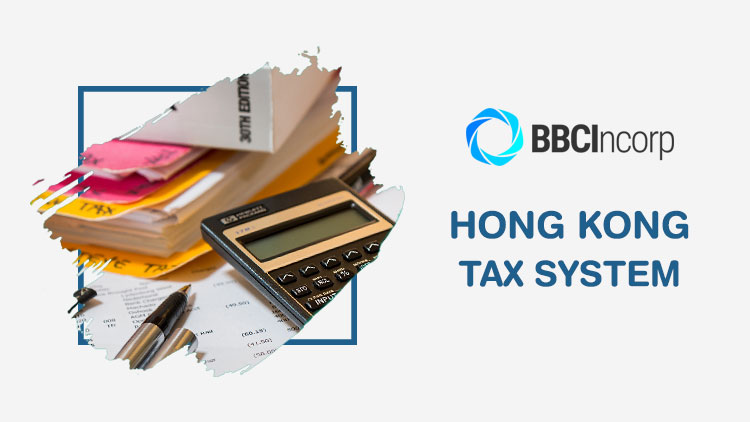
1. Profits tax in Hong Kong
WHAT
Individuals, corporations, partnerships and trustees are obliged by a territorial profits taxation of Hong Kong, regardless of being resident or non-resident. Their incomes from trade, profession or business arising in or derived from this territory are levied based on its two-tiered tax system.
Note
Profits derived from sources outside of Hong Kong can be exempted from taxes. Our Hong Kong Offshore Claim Tool helps you determine the tax status of your income types and ascertain your eligibility for making an offshore claim.
Profits tax rate in Hong Kong of first 2 million HKD is 8.25 percent for corporates and 7.5 percent for unincorporated businesses (i.e sole proprietorships or partnerships). The remainder profit is payable of 16.5 percent and 15 percent for corporations and unincorporated businesses, respectively. Remarkably, it is tax-free for the revenue coming from outside of Hong Kong.
Profits tax rate for the year of assessment of 2018/19 onwards
| Taxpayers | Assessable Profits in HK$ | Tax rate |
|---|---|---|
| Corporations | $2,000,000 | 8.25% |
| Above $2,000,000 | 16.5% | |
| Unincorporated businesses | $2,000,000 | 7.5% |
| Above $2,000,000 | 15% |
HOW
Hong Kong Inland Revenue Department (IRD) issues profits tax return on the first business days of April in the relevant year of assessment (YA), and the filing due date is on May 2nd. Profits tax in Hong Kong must be paid from November to April of the next year. Each type of taxpayers must file one of these forms:
- Profits Tax Return – Corporations (BIR51)
- Profits Tax Return – Persons Other Than Corporations (BIR52)
- Profits Tax Return – In Respect Of Non-Resident Persons (BIR54)
Assessable profits is derived from net profits in financial statements after adjustments to account for non-deductible expenses, allowable expenses and non-assessable income.
| Net Profits + Non-deductible expense + Allowable expense / Non-assessable = Taxable Income |
Non-deductible expenses are comprised of:
- Expenses not incurred in the production of chargeable profits
- Expenses for domestic and private use
- Any disbursements and expenses paid for the proprietor, partner or their spouses related to:
- Remunerations/drawings
- Interest paid for capital or loans
- Contributions to mandatory provident fund scheme (MPF) in excess of allowable amount under Inland Revenue Ordinance and any contributions to MPFs for their spouse.
- Rent and other benefits
- Penalties and fines
- All taxes paid/payable other than salaries tax with respect to employee’s remuneration
- Cost of properties/assets improvements
Incomes exempt from Profits tax typically include:
- Dividends received from a corporation
- Profits already included in assessable profits of other persons i.e of corporation, partnership
- Interest income from following sources:
- Deposit account in Hong Kong from authorized institutions
- Tax reserve certificate
- Bonds issued under the loans ordinance or the loans (government bonds) ordinance
Losses are allowed to be carried forward to offset against profits in subsequent years with no time limit.
2. Salaries tax in Hong Kong
WHAT
The next must-know type in Hong Kong tax system is salary tax. Hong Kong adopts a progressive regime for salary taxation. The tax rates in Hong Kong increase from 2%, 6%, 10%, 14% and 17% due to every 50,000 HKD of net chargeable income. However, people are only levied on the salaries earned inside of Hong Kong according to the territorial principles, alike with profits tax.
Salaries tax rate for the year of assessment of 2018/19 onwards
| Net chargeable income | Salaries tax rate | Salaries tax payable amount |
|---|---|---|
| For the first $HK50,000 | 2% | $HK1,000 |
| On the next $HK50,000 | 6% | $HK3,000 |
| On the next $HK50,000 | 10% | $HK5,000 |
| On the next $HK50,000 | 14% | $HK7,000 |
| Above $HK200,000 | 17% |
Total salaries contain the followings, but not exhaustive:
- Salaries, wages and director’s fee
- Commissions, bonuses, leave pay
- Allowances, perquisites and fringe benefits
- Termination payments and retirement benefits
- Pensions
- Stock awards and share options
HOW
Obliged to IRD requirements, individuals must submit Salaries Tax Return – Individuals (Form BIR60) by June 2nd of the relevant year for unrepresented cases and July 2nd for represented ones. The salaries tax payment is made up of two components:
- Salaries tax for current year of assessment (i.e. 2018/19)
- Provisional salaries tax (PST) for the next assessment year (i.e. 2019/20)
The due date of tax settlement is stipulated in the assessment notice issued by IRD to taxpayers, typically between January and April of the next year.
There are two ways to conduct payable salaries tax in Hong Kong:
- Evaluating as personal assessment: Total of incomes from all sources is taxed at a progressive rate. With its flexibility, taxpayers are able to carry losses among different income tax types. Personal assessment is efficient from the time it is selected. The previous payment is not refundable. Therefore, losses carried forward before the election of personal assessment offset for the same kind of income only.
- Calculating based on salaries tax: The assessable value for salaries tax is computed in one of the following formulae, whichever is lower:
- Based on flat rate:
| Total Income – Deductions (before deductions of allowances) = Net Income |
- Based on progressive rates:
| Total Income – Non-assessable Income – Allowable Deduction – Personal Allowances = Net Chargeable Income |
As mentioned in these followed charts, personal allowances are composed of:
- Basic allowance
- Married person’s allowance
- Child allowance
- Dependent parent/grandparent allowance
- Dependent brother/sister allowance
- Single parent allowance
- Disabled dependent allowance
- Personal disability allowance
Deductions are the expenses wholly and exclusively incurred for producing assessable income, which might be:
- Self-education expenses
- Home loan interest
- Elderly residential care expenses
- Mandatory contributions to recognized retirement schemes
- Approved charitable donations
Taxpayers should choose a more profitable way to handle their salaries tax in Hong Kong based on their circumstances. The flat rate (15%) benefits its payers, who gain high net incomes, better than the progressive rates do (2% to 17% marginally).
Three months after hiring staff, the employer must notify their chargeability to IRD by submitting Form IR56E. This report should consist of staff’s full name, address, marital status, the date of commencement and the terms of employment.
In addition to the flexibility to choose a calculation method that benefits them most, taxpayers are also eligible for tax reduction of 75% tax payable with a maximum of HK$20,000 per case under personal assessment. This is believed to raise the attractiveness of Hong Kong to foreign professionals and talents as a desirable relocation destination.
3. Property tax in Hong Kong
WHAT
Profits gained from rental of lands and buildings located in Hong Kong are chargeable for the property tax. Property owners are taxed at a flat rate of 15 percent from the net assessable value of rental incomes, which include:
- gross rent received or receivable;
- payment for the right of use of premises under license;
- service charges or management fees paid to the owner;
- owner’s expenditure borne by the tenant;
- sums previously deducted as irrecoverable rent and now recovered;
- lump sum premium.
HOW
15 percent of property tax is calculated by the net assessable value (NAV) which is computed as below:
| Rental Income – Irrecoverable Rent – Rates Paid by Owners = Assessable Value (AV) |
| AV – Statutory Allowance (20% of AV) = NAV |
In the situation that tenants are unable to pay on time, the receivable income will be subject to property tax. It is not listed irrecoverable just because the payment is late. If irrecoverable rent exceeds assessable value (AV), the deduction for the remainder will be conducted next year. When you recover any irrecoverable rent, the retrieved amount must be included in AV of the recovery year.
If you are liable to property tax, you must complete Tax Return:
- Property Tax Return – Property Jointly Owned or Co-owned by Individuals or by Corporations (BIR57)
- Property Tax Return – Corporations and Bodies of Persons (BIR58)
Normally, they are issued by IRD on the first working day of April in the following year of assessment. Then they should be filed on or before the 2nd of May. As noticed in the property tax assessment, the first payment must be made typically before the end of November in the year of issuing, and the second installment falls in April of the next year.
Rental revenues of Hong Kong companies are levied as profits tax. Therefore, they should apply for a property tax exemption.
Government and consular properties are not taxable.
4. Hong Kong tax system & key payment methods
Generally, tax payments are made in person at the collection places such as post office, convenience stores, Business Registration office and Stamp office. Additionally, taxpayers in Hong Kong have more options than that:
- By Post: sending a crossed cheque and payment document to the applicable postal addresses of Commissioners of Inland Revenue. Cash and post-dated cheque should not be dispatched via mailing.
- By Bank ATM: bringing bills or account number to ATM at HSBC, Hang Seng Bank or JETCO ATM networks and choosing “Bill Payment”.
- By Internet: using internet banking account to pay tax to the bank account of Hong Kong IRD. Payment made before the due date is considered on time.
- By Telephone: utilizing PPS account which is registered with the proper bill. Call 18011 for registration and 18031 for tax settlement.
- From Overseas: paying with crossed cheque or internet banking with a bank account in Hong Kong. Otherwise, IRD accepts bank draft, crossed cheque, or telegraphic transfer from abroad banks.
People are advised to keep receipts, regardless which types, as payment proofs. In addition to an advanced tax system, it is a bonus for Hong Kong that there is a variety of comfortable ways to arrange tax payment.
5. Conclusion
Under Hong Kong tax system, three popular types of tax that should be taken into account include Profit tax, Salaries tax, and Property tax. Any income that falls outside the scope of those three types of tax is not subject to tax in Hong Kong – i.e., capital gains, interest income, dividend, sales tax. The competitiveness of tax in Hong Kong enlightens its temptation to overseas talents and corporations. That is how Hong Kong remains standing in the top of the world’s most fascinating business and relocation countries.
Disclaimer
While BBCIncorp strives to make the information on this website as timely and accurate as possible, the information itself is for reference purposes only. BBCIncorp would like to inform readers that we make no representation or warranty, express or implied. Feel free to contact BCCIncorp’s customer services for advice on specific cases.
Get helpful tips and info from our newsletter!
Stay in the know and be empowered with our strategic how-tos, resources, and guidelines.


